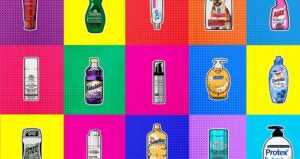 Here’s today’s AdExchanger.com news round-up… Want it by email? Sign-up here.
Here’s today’s AdExchanger.com news round-up… Want it by email? Sign-up here.
Programmatic Youth
Rubicon Project is joining up with “kid-safe” marketing platform SuperAwesome to power the first programmatic exchange reaching children under 13, Lara O’Reilly of Business Insider reports. The “REX” platform won’t use behavioral data in compliance with the FTC’s Children’s Online Privacy Protection Act. “Programmatic in the conventional sense is not possible in the under-13 space,” said Joshua Wohle, SuperAwesome’s CPO. “With REX, we’re enabling buyers to specifically target this audience based on the contextual first-party data we have associated with all of the publishers which run our AwesomeAds technology.” Launched in 2013, the UK-based platform reaches over 250 million children monthly and works with Nintendo, Lego and Warner Bros.
Twitter Losing Altitude
The narrative around Twitter’s Q2 earnings on Tuesday was pretty much the same old story: less-than-robust audience growth. But its ROI potential isn’t looking too hot, either. TheStreet’s Jim Cramer is not one to mince words: “Twitter’s problem is they haven’t figured out how to monetize it.” It’s a sentiment that’s starting to echo. In a research note, BMO Capital Markets analyst Dan Salmon called for “increased caution” around Twitter based on fact that “active advertiser count is no longer expected to grow,” which creates an inherent problem for revenue tethered to spending per advertiser. Until now, Twitter has been able to prop itself up through revenue growth despite its MAU problem. If that changes, investors are going to get antsy, regardless of what Twitter cooks up around live streaming.
Live Action
“The Late Show with Stephen Colbert” has struggled lately, but it saw a sizable digital boost (and modest broadcast boost) after going all-in on Facebook Live during the Republican and Democratic conventions. The stunt boosted CBS site and app traffic, but the big winner was Facebook – the show added 80,000 new fans to its Facebook page and saw millions of additional video views (which will fuel Facebook spending and production from CBS). It’s important to “experiment and adopt new things when they’re made available to us by Facebook and other social platforms,” said Jeff Grossman, CBS Interactive’s SVP of content strategy. More at Digiday.
Rough And Tumblr
Now we all know why Verizon bought Yahoo. “Tumblr this week quietly announced plans to roll out a new advertising program across its site which will see it implementing ads across users’ blogs,” writes Sarah Perez at TechCrunch. The plan is to expand Tumblr’s Creatr program, which connects users with brands (by, say, curating content from select accounts to use in an ad campaign). The big change is that advertising on the platform will be the new default. Users will have to actively disable ads to their pages. More.
But Wait, There’s More!
- The Guardian Loses £69M Over The Year, Gains 50,000 Paying Members – The Guardian
- Brands Born Online, Reshaping The Retail Landscape – NYT
- Flashtalking Partners With Integral Ad Science On Attribution Accuracy – release
- Pepperjam Acquires AdAssured – release
- Trump Spent Far More On Online Ads Than Clinton In June – Ad Age
- Google Names Marfeel A Certified Publishing Partner – release
- M-commerce: Has The Mobile Web Finally Won? – Search Engine Watch
- More Brands Are Using Emojis In Their Messaging – eMarketer
- Matomy Launches Mobile Performance Agency Mtmy – release
- Social Now A Quarter Of Digital Ad Spend, Mostly Branding – MediaPost
You’re Hired!
- Pinterest Poaches Snapchat Exec To Lead Measurement Science – Adweek
- IPG Promotes Mat Baxter to Global CEO of Initiative – Ad Age
- PubMatic Hires Jeff Hirsch As CMO – release
- Prohaska Consulting Adds Laura Gaffney And Michael Stoeckel To Exec Team – blog
- Jeanne Houweling Joins Tremor As VP Programmatic Demand Partnerships – release
- Xaxis Names Nicolas Bidon CEO, EMEA – release
- CPXi Names Joseph Gallagher SVP Of Corporate Development And Sales – release
- Cambridge Analytica Names Duke Perrucci As CRO – blog









